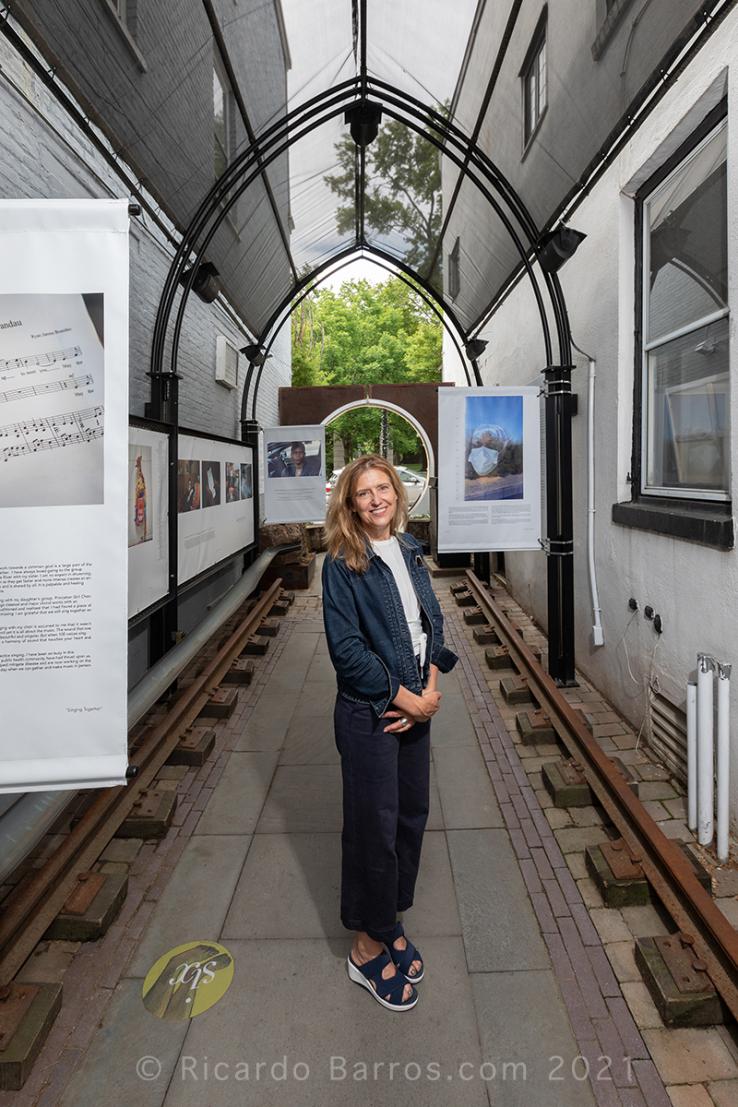
Robin Resch *03’s portrait project began on the road. In November 2018, the photographer and School of Architecture graduate left Princeton for cities across the United States to ask people she’d never met a question: What is irreplaceable to you?
Sometimes, days would pass before they arrived at an answer. Resch expected that; she designed the project, called “Taking Pause,” to function more like a collaboration and less like a transaction between artist and subject. Much of that meant listening and waiting, keeping her camera in its bag. The 30 people she met over those first three months were much more involved with the project than is typical with portraits, Resch says. “I ended up in some situations, spending time with some people, who didn’t want to be photographed. And that was fine with me.”
It became an exercise in trust. In New Orleans, Resch stayed for a week with one host who introduced her to people interested in the project. She worked with a woman in New Mexico who “just didn’t think she had anything to share.” That reaction cropped up again and again. “Why me?” they’d ask. But after hours and days of talking, many admitted that the prompt was “something essential to ask themselves,” Resch says. “Most people were very grateful to think about the question because they hadn’t really thought about it. I count myself within that.”
Then, two years later, long exchanges with strangers became foreign. In December 2020, lockdowns were tightening again in many parts of the country, and Resch was just starting to photograph residents of Princeton as part of her new exhibition, which is displayed inside Nassau Street’s Dohm Alley through October. “The pandemic introduced a whole slew of fear for so many people,” she says. “Fear about your physical safety or just a question: Who can you trust?”
To carefully tell stories of how Princeton’s residents were impacted, Resch turned for recommendations to the director of the Food Bank, former mayor Liz Lempert, and Anne-Marie Slaughter, ex-dean of the university’s School of Public and International Affairs. Portraits of seven people now hang in the narrow walkway wedged between Starbucks and the Landau bookstore. Each display is made up of three parts: a photographed portrait, a “reflective portrait” or creative portrayal of the person by Resch, and a short written text they submit to her.
“It’s beautiful, the difference in freedom of expression,” Resch says of the writing. “It’s also beautiful how people respond to the opportunity to write something. This particular group is pretty abstract; two [of their writings] are almost like poems.”
Healthcare workers on the front lines of New Jersey hospitals were the hardest to reach. After spending four months coordinating, Resch finally met one technician who had been working in a COVID-19 tent when she caught the virus. Her husband soon picked it up at home and was hospitalized for three months.
“She had to fight to keep him intubated,” Resch says. “And prove to him that she was still alive.” For this round of portraits, in Princeton, Resch sent a letter to each person she hoped to include in the project. This participant, Resch says, sat with that note for two weeks until finding her answer. “It helped me to focus on what’s missing,” she told Resch the first time they spoke. “And what I need to try to get back.” When asked what she considered irreplaceable, the woman replied: “Peace of mind.”
As traveling becomes safer, Resch hopes to resume the road trip or plan extended trips to new communities, to someday combine her portraits from around the country with the work from Princeton. By then, the project will span a years-long framework, marking time before, during, and after the pandemic.
